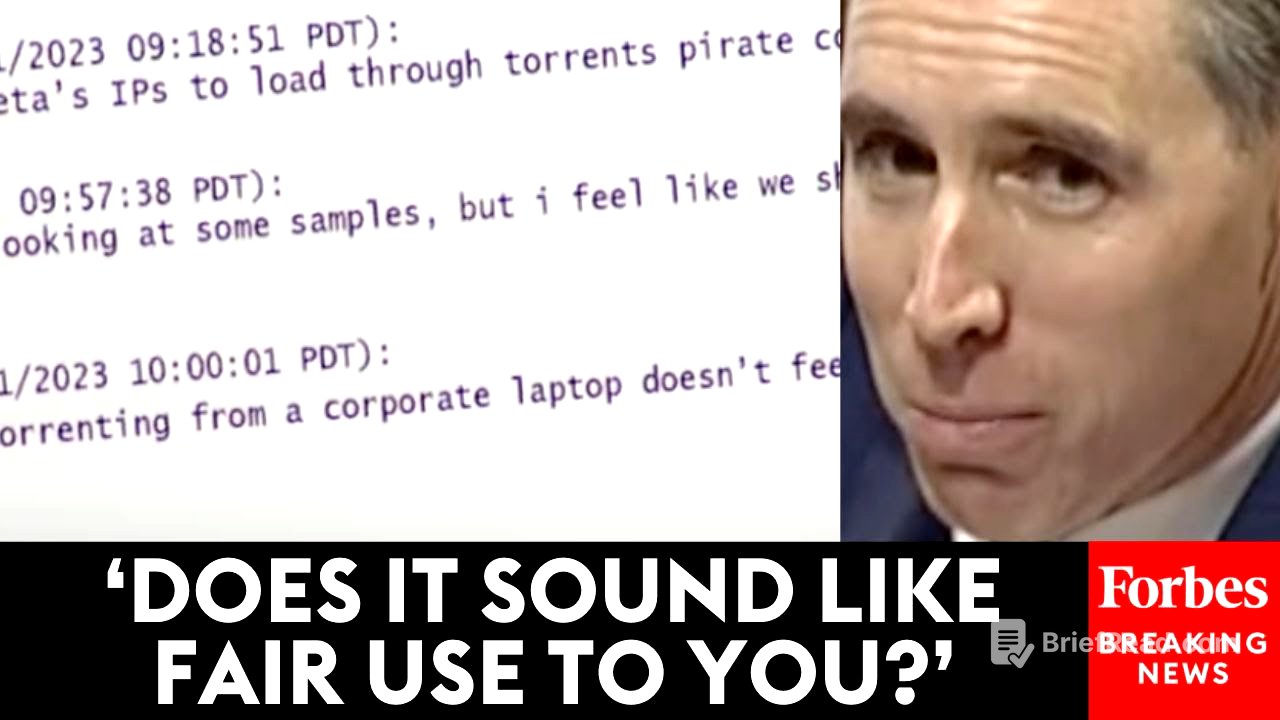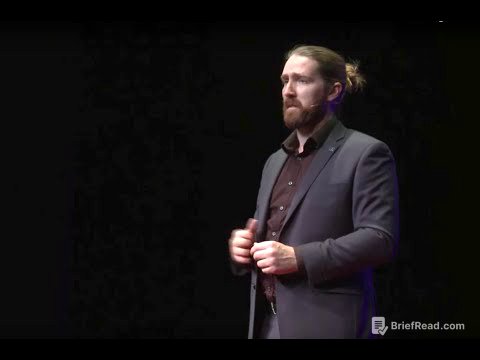TLDR;
The discussion revolves around Meta's alleged copyright infringement through the use of pirated materials to train its AI models. Evidence suggests Meta employees were aware of the ethical and potential legal issues, and took steps to hide their activities. The debate questions whether such actions constitute fair use and calls for legislative intervention if current laws fail to protect creators' rights. The actions were escalated to Mark Zuckerberg, and he decided to proceed with using the pirated works.
- Meta allegedly used pirated materials from Anna's Archive to train AI models.
- Meta employees were aware of ethical and legal concerns, attempting to hide their actions.
- The actions were escalated to Mark Zuckerberg.
- The discussion questions whether Meta's actions constitute fair use.
- There are calls for legislative intervention to protect creators' rights.
Meta's Alleged Copyright Infringement [0:02]
Meta engineers expressed concerns about the ethical implications of using pirated content, acknowledging they were "crossing an ethical line" and had to "cut some corners." Documents indicate that in 2024, when Meta started using Anna's Archive, it intentionally avoided using its own servers, opting for Amazon Web Services to prevent tracing the sharing of pirated works back to Meta's IP address. This behavior suggests the company was aware of the potential illegality of its actions.
Internal Concerns and Attempts to Hide Activities [0:56]
Internal communications among Meta engineers reveal their awareness of the copyright issues. One engineer questioned the use of Meta's IPs to load pirated content via torrents, while another sought clarity on what was allowed, expressing discomfort with torrenting from a corporate laptop. Further evidence shows Meta employees actively trying to avoid creating a paper trail by preventing the seeding from being traced back to Facebook servers, indicating an attempt to conceal their activities.
Fair Use and the Need for Legislative Action [1:51]
The discussion challenges the notion that Meta's actions could be considered fair use, emphasizing that Supreme Court case law requires good faith and fair dealing, which the presented documents seem to contradict. It's argued that if Meta's actions are not deemed infringement, legislative intervention is necessary to protect authors' rights. The concern is that allowing a large corporation to profit from pirated work without compensating creators undermines the principles of American copyright law and the constitutional rights of citizens.
Mark Zuckerberg's Involvement [4:40]
The decision to use Library Genesis, a known illicit marketplace, for training AI models was escalated to Mark Zuckerberg. After failing to acquire licenses in the spring of 2023, Meta, with Zuckerberg's approval, proceeded to use works acquired from a torrenting platform as training data. This decision bypassed compensating authors and creators, opting instead for a cheaper, albeit potentially illegal, alternative to generate billions in profits.
Moral and Ethical Implications [5:47]
The issue is framed as a moral one, questioning whether the country will protect the rights of its citizens and the creative genius of its people, or allow mega-corporations to exploit their work for profit without compensation. While acknowledging the free market and the right to make profits, it's argued that this should not come at the expense of individual authors and creators. The act of taking content without consent is deemed morally wrong and inconsistent with American principles.


![[위대한수업] 나와 세상을 연결해주는 진화의 메커니즘! 위대한 수업 폴 너스 4강 요약해드려요. 진화의 메커니즘, 자연선택. great minds](https://wm-img.halpindev.com/p-briefread_c-10_b-10/urlb/aHR0cDovL2ltZy55b3V0dWJlLmNvbS92aS9EWlBWR3E3bUhtcy9ocWRlZmF1bHQuanBn.jpg)






